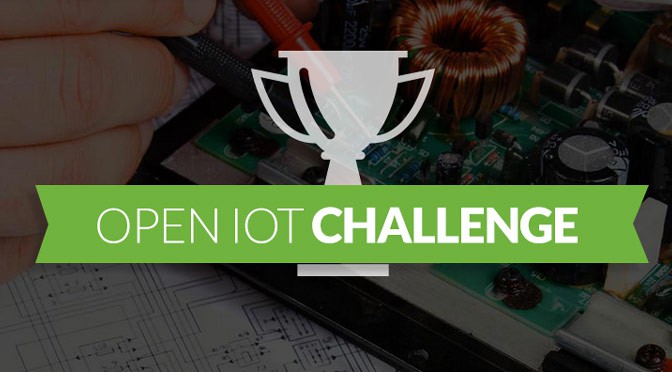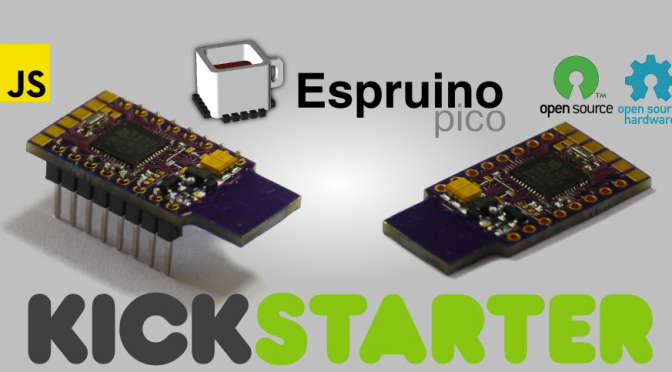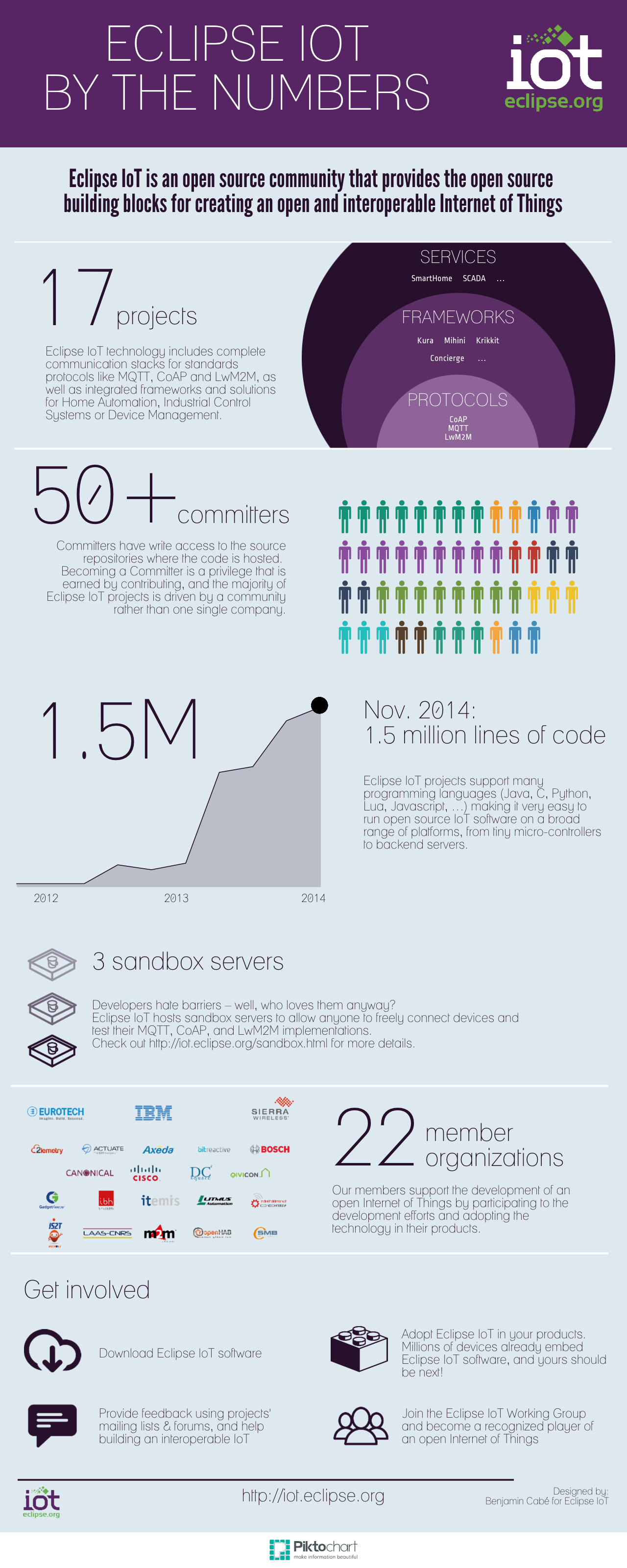2014 is almost over, and one of the first big events for Eclipse IoT next year will be EclipseCon 2015, March 9-12 in Burlingame, California.
If you haven’t seen the EclipseCon program already, I highly encourage you to check out all the great sessions that we have selected as part of the IoT Theme Day, and of course the rest of the program which has just been announced. This year, EclipseCon is colocated with FOSS4G North America, the largest global gathering focused on open source geospatial software.
In order to encourage everyone to start making Internet of Things a reality, we are launching a programming contest that fosters the creation of IoT projects based on top of open-source technologies, and that we hope will keep everyone busy during the few months separating us from EclipseCon. You can get familiar with the conditions to participate at http://iot.eclipse.org/open-iot-challenge.
Here are a few ideas of projects or technologies that I would really like to see used by the participants:
- Geolocation technologies like the ones available as part of the LocationTech initiative. How about, for example, using GeoMesa to store spatio-temporal data points corresponding to the air quality measured by environmental sensors?
- A project combining low-cost/low-power IoT microcontrollers powered by an embedded OS like Contiki or RIOT, and a more powerful IoT gateway (running for example Kura) in charge of the heavy lifting of the sensor data before it’s sent to the cloud.
- IoT is merely a buzzword (sorry, I hope you already knew! :smile:) for “connecting more devices to the internet”. Those devices’ core value is their data, and there are many opportunities for your projects to leverage time-series databases or stream processing technologies to actually make sense out of the amount of data generated by the IoT.
To enter the challenge, you simply have to apply via this online form before January 17, 2015 and tell us what you plan to build. Don’t wait!


